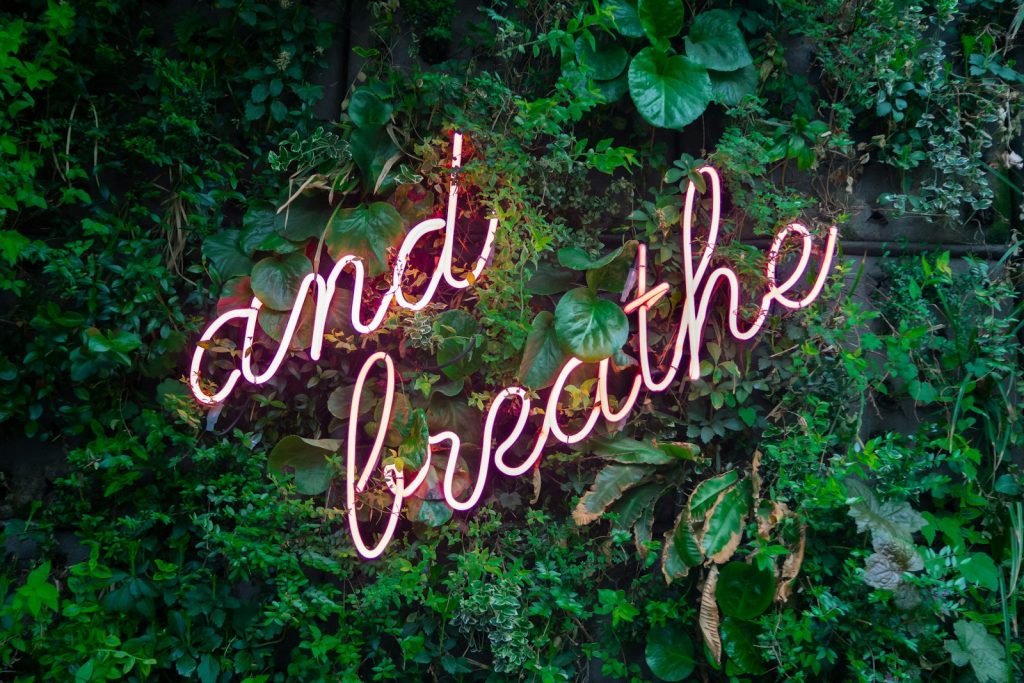Effective Communication in Relationships
Effective communication forms the backbone of any successful relationship. It's not just about talking; it's about understanding and being understood.
Importance of Communication
In a relationship, open and honest communication is essential. It allows partners to express their thoughts and feelings, fostering a deeper connection and understanding. This is particularly important for men seeking relationship advice for men, as it helps break down barriers and build trust.
Good communication ensures that both partners feel heard and valued. It can prevent misunderstandings and conflicts, leading to a more harmonious relationship. Effective dialogue involves active listening, empathy, and a willingness to share one's own emotions transparently.
Resolving Conflict Respectfully
Conflict is inevitable in any relationship, but resolving it respectfully is crucial. According to Loveisrespect.org, healthy conflict resolution strengthens the bond between partners. Here are some key strategies:
- Establishing Boundaries: Ensure that both partners are treated with respect, even during disagreements. If one partner is disrespectful, communicate this and, if necessary, step away from the argument to cool down.
- Identifying Underlying Issues: Often, conflicts stem from deeper issues such as feelings of insecurity or lack of respect. Addressing these root causes can prevent recurring arguments over trivial matters.
- Compromise: Finding a middle ground or taking turns in making decisions helps both partners feel satisfied with the outcome. Compromise is a cornerstone of conflict resolution and a successful relationship.
- Avoiding Personal Attacks: In a healthy relationship, conflicts should not lead to personal attacks or attempts to lower each other's self-esteem. If expressing oneself results in fear of retaliation, it could indicate an abusive relationship.
| Conflict Resolution Strategy | Description |
|---|---|
| Establishing Boundaries | Treating each other with respect, even during arguments. |
| Identifying Underlying Issues | Addressing deeper issues like insecurity or lack of respect. |
| Compromise | Finding middle ground or taking turns in decisions. |
| Avoiding Personal Attacks | Preventing personal attacks or lowering self-esteem. |
For more in-depth advice on handling conflicts, consider marriage counseling or exploring additional communication in relationships resources.
Effective communication and respectful conflict resolution are vital components of a healthy relationship. By mastering these skills, couples can foster a deeper connection and navigate challenges more smoothly. For further insights on maintaining a strong bond, check out our articles on signs of a healthy relationship and how to improve relationship.
Providing Emotional Support
Understanding and providing emotional support is a cornerstone in any strong relationship. It requires both partners to be attuned to each other's needs and to strike a balance between offering support and maintaining their own well-being.
Understanding Partner’s Needs
In relationships, understanding your partner's emotional needs is vital. If your partner is opening up to you and you are unsure what they need, ask them directly. Questions like, "Would you prefer comfort or solutions right now?" can help clarify what they are seeking in the moment. This approach ensures that you provide the right kind of support, whether it is listening empathetically or offering practical advice.
Providing emotional support can significantly strengthen your relationship in the long run. Sharing feelings with your partner is highly beneficial. Taking turns discussing your emotions can foster a sense of mutual understanding and reduce feelings of isolation. You may find that your partner is experiencing similar emotions, which can help both of you feel less alone.
Negative emotions and mental health issues should not be hidden from your partner. Concealing such feelings can erode trust and potentially lead to anxiety, depression, or other mental health disorders. Open communication and seeking therapy can address these vulnerabilities and build a more resilient relationship.
Balancing Support and Self-care
While it is important to provide emotional support to your partner, it is equally crucial to look after your own emotional well-being. Providing support when you are also feeling low can be challenging. Self-care ensures that you have the emotional capacity to be there for your partner (Verywell Mind).

Here are some strategies for balancing support and self-care:
- Set Boundaries: Clearly communicate your limits to your partner to avoid emotional burnout.
- Practice Self-care: Engage in activities that rejuvenate you, such as exercise, hobbies, or spending time with friends.
- Seek Support: Don't hesitate to seek emotional support from friends, family, or a therapist.
| Self-care Activities | Benefits |
|---|---|
| Exercise | Reduces stress, improves mood |
| Hobbies | Provides relaxation, enhances creativity |
| Socializing | Offers emotional support, reduces loneliness |
By integrating these strategies, you can maintain a healthy balance between offering support and ensuring your own well-being. For more tips on maintaining a healthy relationship, visit our articles on signs of a healthy relationship and how to improve relationship.
Understanding and balancing emotional support is key to a thriving relationship. By being attentive to your partner's needs and taking care of your own emotional health, you can build a stronger, more supportive partnership.
Overcoming Gender Stereotypes
In modern relationships, overcoming gender stereotypes is crucial for fostering a healthy and balanced partnership. This involves addressing emotional expression challenges and breaking traditional relationship roles.
Emotional Expression Challenges
Traditional gender stereotypes often expect men to be strong, stoic, and not show emotions or affection. Crying or showing vulnerability is frequently seen as a sign of weakness, while expressing anger is viewed as normal for men (Calmerry). This can significantly impact their relationships, leading to issues such as:
- Difficulty in describing emotions
- Suppression of feelings, known as normative male alexithymia
- A lack of emotional connection with their partner
To overcome these challenges, men can practice open communication and emotional expression. Doing so can enhance intimacy and trust within the relationship. For additional support, consider marriage counseling to develop effective communication strategies.
Breaking Traditional Relationship Roles
Men often face societal pressure to be the decision-maker and breadwinner in a relationship. Failure to meet these traditional roles can lead to self-esteem issues, anxiety, and depression. Breaking free from these stereotypes involves:
- Recognizing that worth is not solely determined by financial contributions
- Sharing responsibilities equally with a partner
- Embracing non-traditional roles and supporting each other's strengths
Performance anxiety related to intimacy is another significant issue influenced by societal expectations. The pressure to always be ready for sex can lead to difficulties in the bedroom, impacting mental health and relationships.
To address performance anxiety, communication and openness are key. Discussing concerns with a partner and seeking therapy can help build a stronger, more understanding relationship. For more advice, visit our page on relationship advice for men.
By addressing emotional expression challenges and breaking traditional roles, men can build healthier, more balanced relationships. For further tips on improving relationships, check out our guide on how to improve relationships.
Showing Appreciation in Relationships
Appreciation is a cornerstone of any healthy relationship. For men, feeling valued and recognised can significantly strengthen their emotional connection with their partner. Understanding and implementing gestures of appreciation can enhance the bond between couples.
Gestures of Appreciation
Small, thoughtful gestures can make a big difference in showing appreciation. Here are some effective ways to convey gratitude:
Warm Greetings
Men feel appreciated when they receive warm greetings, especially with a hug, upon meeting their significant other. This simple gesture can make their day and enhance the connection in the relationship.
Verbal Acknowledgement
Men value it when their partner verbally acknowledges and appreciates specific actions or qualities. Concrete details in expressions of gratitude are particularly meaningful to them. For example, saying "I really appreciate how you always make time for us to cook dinner together" can be much more impactful than a general "thank you."
Quality Time
Spending meaningful time together is highly appreciated by men. Whether it's watching activities together or planning outings related to their interests, quality time strengthens the bond and makes men feel valued.
| Gesture | Example |
|---|---|
| Warm Greetings | A hug when they come home |
| Verbal Acknowledgement | "I appreciate how you fixed the sink" |
| Quality Time | Watching a game together |
| Special Meals | Cooking his favourite dish |
Special Meals
Men also feel appreciated when their partners put thought and effort into preparing their favourite dishes or surprising them with special meals. The act of making a meal that resonates with their preferences conveys love and care.
Strengthening Bonds through Gratitude
Expressing gratitude regularly can significantly strengthen the bond between partners. Here are some tips to integrate gratitude into your daily interactions:
Daily Gratitude
Make it a habit to express gratitude daily. This could be a simple "thank you" for small acts like making coffee or helping with chores. Regular expressions of appreciation can build a positive atmosphere in the relationship.
Understand Their Preferences
Understanding what gestures or actions make your partner feel most appreciated can help tailor your expressions of gratitude. For more tips on understanding partner’s needs, check out our section on relationship advice.
Plan Surprise Gestures
Occasionally planning surprise gestures can keep the relationship exciting. This could include planning a surprise date, giving a small gift, or writing a heartfelt note.
Practice Active Listening
Listening actively to your partner shows that you value their thoughts and feelings. This can be a powerful way to show appreciation and strengthen emotional bonds. For more on effective communication, visit our article on communication in relationships.
Integrating these practices into your relationship can foster a deeper connection and mutual appreciation. Regularly showing gratitude and appreciation can make your partner feel valued and loved, enhancing the overall health of your relationship. For more advice, check out our love advice section.

























Post Comment
You must be logged in to post a comment.